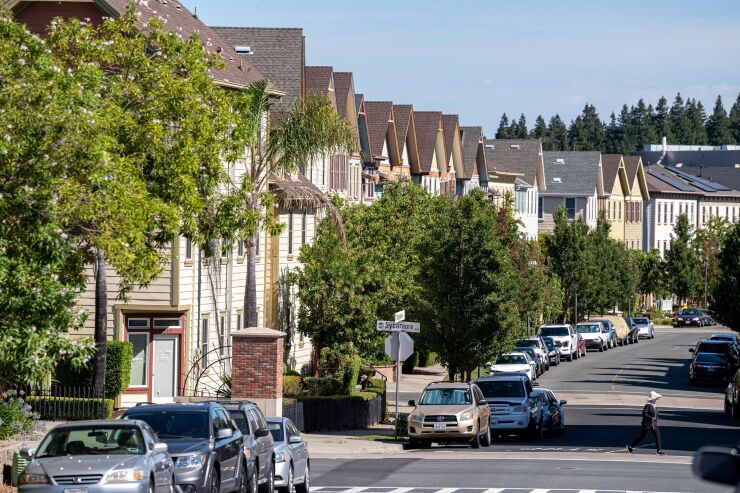Sales of previously-owned homes in the U.S. fell in March from a one-year high, underscoring the lingering impact of high mortgage rates and
Contract closings decreased 4.3% from a month earlier to a 4.19 million annualized rate, according to National Association of Realtors data released Thursday. The pace was in line with the median estimate of economists surveyed by Bloomberg.
"Though rebounding from cyclical lows, home sales are stuck because interest rates have not made any major moves," NAR Chief Economist Lawrence Yun said in a statement.

, hindering recent momentum in the housing market. Purchases of new houses have also cooled as prospective buyers move to the sidelines until financing costs ease.
Other housing data this week showed builder optimism leveled off and construction starts decreased. Mortgage rates remain more than twice as high as at the end of 2021, and Federal Reserve Chair Jerome Powell on Tuesday said the Fed is prepared to keep rates
The inventory of previously-owned homes for sale increased 14.4% in March from the same month last year to 1.11 million. While inventory is still historically low, it's been creeping up as some homeowners feel they can't delay moving any longer.
At the current sales pace, selling all the properties on the market would take 3.2 months, compared with a 2.7-month supply in March of last year. Realtors see anything below five months of supply as indicative of a tight market.
Sales Price
The median selling price increased 4.8% from a year ago to $393,500, the highest for any March on record.
"More inventory is always welcomed in the current environment," Yun said. "It's a great time to list with ongoing multiple offers on mid-priced properties and, overall, home prices continuing to rise."
Some 60% of the homes sold were on the market for less than a month, and 29% sold above the list price, Yun said on a call with reporters.
The NAR's report also showed properties remained on the market for 33 days on average in March, down from 38 a month earlier.
Existing-home sales account for the majority of U.S. housing and are calculated when a contract closes.




